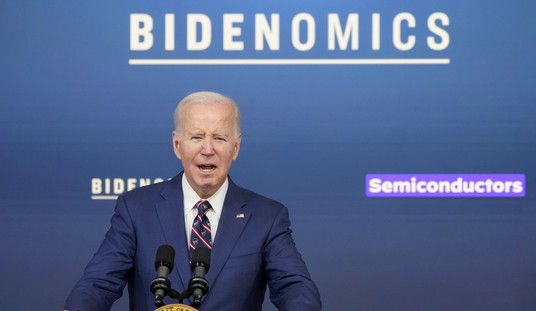“Nuke a gay whale for Christ,” read a popular bumper sticker in the 1980s. The giddy level of concentration of hot-button politics in that sentiment was a parody of a conservative’s view of the universe. So what are we to make of Precious: Based on the Novel “Push” by Sapphire? It’s just as densely packed as that bumper sticker.
Don’t let the rambling title fool you, because this movie, which was the “breakout hit,” as they say, of last winter’s Sundance Film Festival, is fiercely focused on one concept: liberal porn.
The title character of the film, which is set in the 1980s in impoverished Harlem, is a teen with a heart trying to make her way through a system without a soul. Precious is an obese, wounded yet spunky girl (played, at times movingly, by newcomer Gabourey “Gabby” Sidibe, who is so overweight that the fat in her cheeks makes it difficult to read the expression in her eyes).
You can sense the liberal imagination pinging around the world of Precious like a pinball madly ringing up points. She is deeply shy. Ding!
She is an unwed mother. Ding!
She is black and on welfare. Ding!
She can’t read but (for no apparent reason) is hauled out of her dysfunctional school and elevated to a more intensive one where a hip yet sensitive teacher firmly but gently nudges her forward. Ding!
She lives with a cruel mother (Mo’nique) who is so nasty she opposes the poor girl’s wish to attend a better school and even tries to drop a TV on her head. Ding!
She was raped by her own father. Ding!
Her two children are, in fact, the product of this long-running incestuous series of brutal rapes. Ding ding ding ding ding!
At some point, you are bound to wonder whether the pinball machine is racking up so many points because somebody has disabled the “tilt” function.
In other words, this movie cheats a little, until it cheats a lot. It overeggs the pudding, it gilds the lily, it goes over the top and keeps right on going.
For me, the breaking point came when the beautiful, loving teacher turned out to be a lesbian (with of course, a loving, nurturing partner. Yay, lesbians!). There’s even a little speech about the evils of welfare reform, an idea that was then much discussed (and later was codified as law, becoming such a success at lifting people out of poverty that even liberal newspapers were forced to take notice of the plain fact that unlimited welfare is counterproductive and destructive of morale).
By the time Precious finds out she has HIV, well, the movie is fully in bumper-sticker mode. Honk if you feel sorry for black unwed teen illiterate incest-and-rape victims with AIDS!
But didn’t you already feel sorry for incest victims? For rape victims? For poor people? I did. I didn’t really need a shamelessly manipulative movie to get me to that point and encourage me to feel proud of how enlightened I am to recognize the obvious.
Is Precious effective? It is, sometimes, but just as often it’s the political equivalent of a slasher movie. The attacks on Precious never relent. It’s like the world is set up specifically to terrorize her. Her only respite is her fantasy view of herself, as a celebrated song-and-dance personality who gets to wear fancy clothes on TV, and in several colorful sequences we get a look at this inner life of our heroine the way she so obviously isn’t. These moments are a little bit funny, but mostly they’re sad. That’s unfortunate, because they essentially keep us looking down at Precious as a charity case instead of really understanding her.
The movie is getting a heavy promotional push from Tyler Perry and Oprah Winfrey, which probably tells you all you need to know. A movie located at the intersection of Sundance and Oprah is likely to mean arty, in a middlebrow way; a grit that’s sentimental; the politics of emotion. It reserves its greatest degree of absurdity for the end, when it starts to imply that everything is going to be all right with Precious because she can now, sort of, read. Because for all its “authenticity,” it’s the phony happy ending that makes it Oprah-worthy.









Join the conversation as a VIP Member